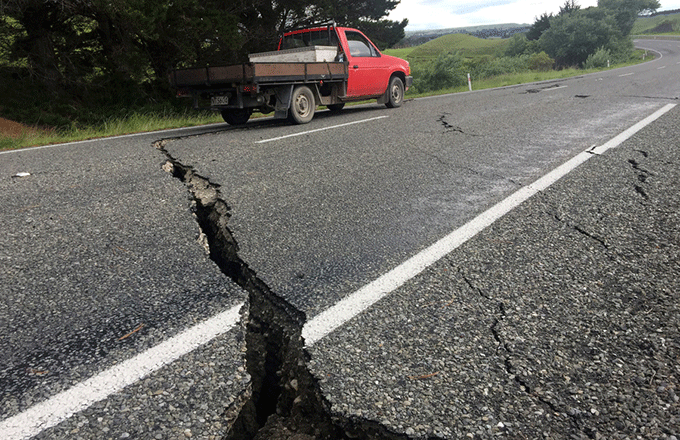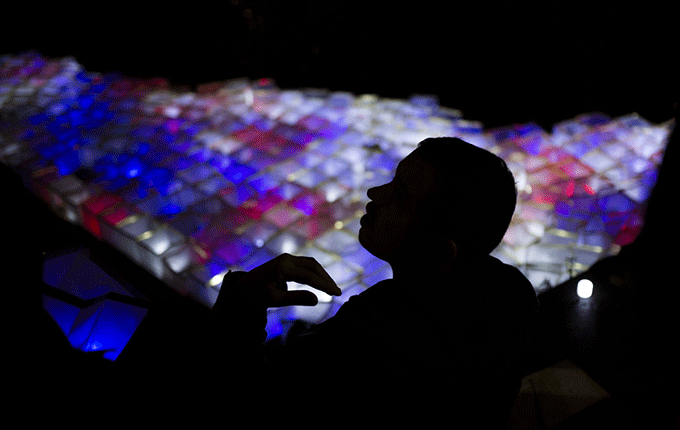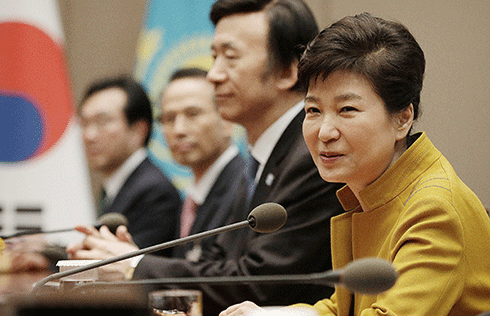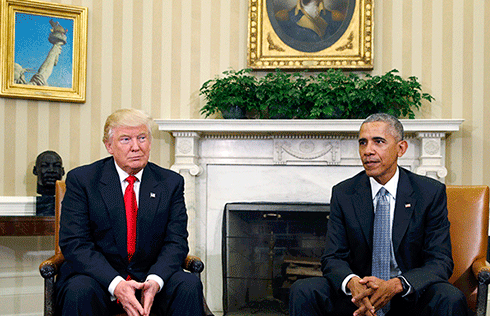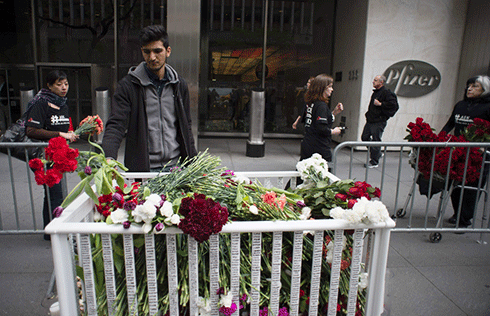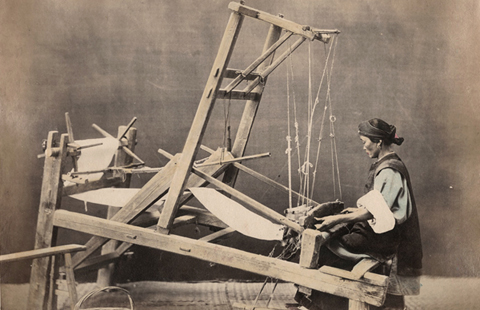Boeing plans to address Dreamliner compensation
Boeing Co will address compensation claims from customers of its 787 Dreamliner jets once the grounded aircraft are back in service, the company's vice-president for sales in Asia-Pacific and India said on Thursday.
"The focus is to get the airplane back, then we will deal with that issue like we dealt with all these deliveries that are happening," Dinesh Keskar told Reuters on the sidelines of an air show in the southern Indian city of Bangalore.
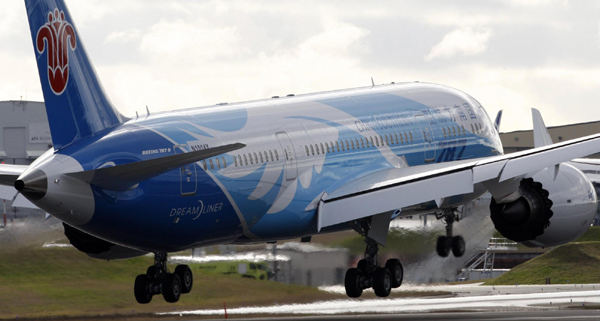 |
|
The Boeing 787 lands in Everett, Washington travelling with crew only from Fort Worth, Texas Feb 7, 2013. [Photo/Agencies] |
"We will deal with that in closed rooms and with customers."
Boeing's 50 Dreamliners in service have been grounded since mid-January following two incidents involving battery problems. A US investigation into the issues is "weeks away" from completion, its head said this week.
Indian national carrier Air India has six Dreamliners and has ordered 21 more. The airline could seek compensation from Boeing for the jet's glitches, India's aviation minister said last month.
Boeing is working on battery design changes that would minimize fire risks on its grounded 787 Dreamliner and could have the jet flying again as soon as March, the Wall Street Journal reported on Wednesday.
Separately, US aviation regulators said they will allow Boeing to make a one-off 787 flight from Texas to the aircraft maker's facility in Washington state, under strict conditions. Boeing said the plane, scheduled for delivery to China Southern Airlines, will be a "ferry" flight - used to relocate a plane without carrying passengers or conducting tests.
Regulators around the world grounded the technologically advanced 787 in mid-January after a battery fire in Boston and a second incident involving a battery on a flight in Japan.
Boeing is looking at changes within the 787's lithium-ion battery to keep heat or fire from spreading, though technical details have yet to be finalized or approved, The Wall Street Journal reported, citing unnamed government and industry officials. One of the paper's sources added that, under a best-case scenario, passenger flights could resume in March.
All Nippon Airways Co announced on Thursday it was canceling 681 flights in March due to the global grounding of Boeing Dreamliners.
ANA said 461 domestic flights and 220 international flights in March will be canceled, affecting some 25,500 people.
ANA, one of the biggest Dreamliner customers, has 55 Dreamliners on order, 13 of which have been delivered.
A Boeing 787 operated by All Nippon Airways made an emergency landing at Takamatsu Airport last Wednesday, marking the latest defect exposed after a series of accidents on the Boeing's newest jet.
Boeing declined to comment on the newspaper report. GS Yuasa Corp, the Japanese company that makes batteries for the 787, also declined to comment.
Ongoing investigation
Air safety investigators from the United States and Japan have been looking into the battery incidents for three weeks. On Wednesday, the head of the US National Transportation Safety Board said it was "probably weeks away" from completing its probe.
The board is conducting the US probe with help from Boeing, GS Yuasa, the Federal Aviation Administration and battery experts from other US federal agencies. No one has yet identified what caused the battery failures.
In Tokyo, one official said Japanese regulators had not been notified of any breakthrough in the US battery investigation. "The investigation will continue as scheduled. Resuming flights in March ... seems far too optimistic to me," said the official who didn't want to be named as the investigation is ongoing.
One source familiar with the investigation told Reuters that Boeing engineers sprang into action almost immediately after the first battery incident to ensure the company could meet special FAA-approved conditions to allow lithium-ion batteries on the aircraft. "They can't afford to sit around with their planes on the ground," said the source, who was not authorized to speak publicly.
Boeing was pursuing multiple solutions to mitigate and contain a fire if one started in the batteries, part of a determined effort to get the 787s back in the air while a more permanent solution - possibly even a different battery - was explored.
Three or four different approaches would be pursued to ensure the batteries did not breach their containment systems, even if they caught fire, said the source.
- Officials investigate Boeing 787 battery maker
- Boeing 787 probe far from complete
- US starts investigation into Boeing 787 in Japan
- China unaffected by Boeing 787 checks
- US grounds Boeing 787 over battery concerns
- US orders comprehensive review of Boeing 787s
- Boeing 787 is safe: top engineer
- United Airlines to fly Shanghai with Boeing 787
- COMAC, Boeing cooperate to recycle oil
- WTO says Boeing received illegal subsidies
- Boeing wins $3.48b US missile defense contract






